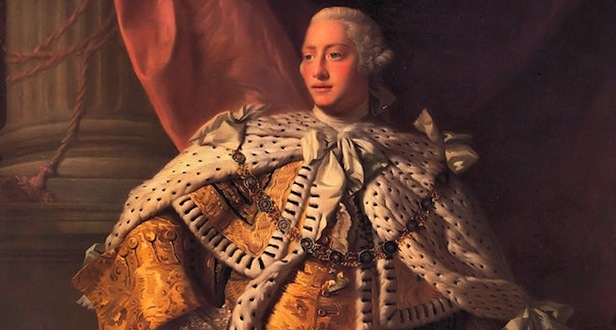Even the madness of King George III struggles to match up to these three eccentrics
William John Cavendish-Scott Bentinck, 5th Duke of Portland (1800 – 1879)
William Cavendish earned the nickname ‘The prince of silence’ due to his decision to live his life in seclusion. After a reasonably ordinary upbringing or home schooling and military service, Bentinck began to construct his estate of Welbeck Abbey. Costing an enoromous sum of money and employing thousands of men, the abbey featured a complex maze of underground tunnels totaling 24km (15 mi) in length. The underground chambers (all of which were pink) included a great hall used as a picture gallery and ball room with a hydraulic lift that could carry 20 guest from the surface. However, the Duke never held any dances in his extravagant ballroom. This was likely due to his extremely introverted nature. He never invited any guests into his home, his rooms featured double letterboxes for ingoing and outgoing mail. The only person permitted to see him was his valet, denying entry even to the doctor. If any of his staff did see him they were instructed to act as if he did not exist. He almost exclusively ventured outside at night, preceded by a servant carrying a lantern 40 yards ahead of him. If he did go out during the day he wore two overcoats, a tall hat, high collar and hid beneath a large umbrella if anyone attempted to address him.
Henry Cyril Paget, 5th Marquess of Anglesey (1875 – 1905)
Born to a wealthy family, when his father passed away Paget inherited his title and a massive inheritance of family estates with 30,000 acres and an annual income of £110,000. He soon began to gain a reputation for his lavish lifestyle, squandering his inheritance on extravagant jewellery and animal furs. He threw flamboyant parties and converted the family chapel into a theatre called Gaiety Theatre, of which he always played the lead role in the productions. He also earned the nickname “the dancing marquess” due to his habit of performing “sinuous, sexy, snake-like dances.” His family dubbed him a black sheep and his wife annulled their marriage due to nonconsummation, leading many to assume he was homosexual. However there is no evidence for lovers of either gender and it has been concluded that the only person he was capable of loving was himself. After amassing massive debts and being declared bankrupt, Paget died of a long illness. His family quickly destroyed all his papers and much of Paget’s personal life has been lost forever.
Jemmy Hirst (1738 – 1829)
James ‘Jemmy’ Hirst’s eccentricities began early when at school he kept a pet jackdaw and trained a hedgehog to follow him around. His animal training tendencies continued when he trained a bull to behave like a horse, pulling a carriage of Hirst’s own design, made of wicker and fitted with sails. He also rode his pet bull in fox hunts, using pigs as pointers rather than dogs. Hirst encouraged the poor and infirm to eat tea at his house, summoning them with a hunting horn and serving refreshments from a coffin. Hirst’s eccentricties were so well known that King George III invited him to visit him in London, Hirst declined as he was training otters to fish, but did arrive later, attracting much attention with his flamboyant clothes. When he died his will instructed his coffin to be followed by 12 old maids, a fiddler and a bagpiper who were to play happy songs, he also left a length of rope to his accountant to “go hang himself with.”

